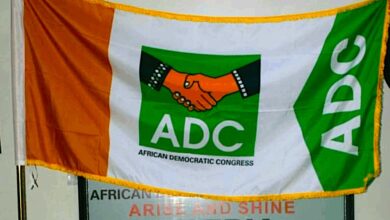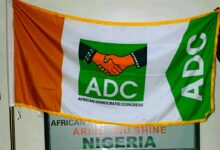PENGASSAN exposes marketers as forces behind petrol scarcity, move to increase pump price

*We have detected many cases of hoarding by marketers – NNPC
“They give you so many reasons, they say dollar is not accessible, they say this, they say that, but we tell them ‘no’, you can’t do that. And so subtle hoarding begins to take place, they start looking for ways to force the government to increase price. That is the game.”
The oil marketers have been exposed as forces behind the move to increase fuel price in the country, the Petroleum and National Gas Senior Staff Association of Nigeria (PENGASSAN) has said, even as it also disclosed that the scarcity of Premium Motor Spirit, popularly known as petrol, is mainly because of its hoarding and diversion by the same oil marketers who, according to the association, are pushing for an increase in the price of the commodity.
In an exclusive interview with a print medium in Abuja, the PENGASSAN’s National President, Mr. Francis Johnson, stated that it was wrong to attribute the scarcity being witnessed in most parts of the country to the recent threat by the association to embark on a strike.
It specifically stated that dealers under the aegis of the Major Oil Marketers Association of Nigeria, Depot and Petroleum Products Marketers Association, as well as the Independent Petroleum Marketers Association of Nigeria were all involved in the hoarding and diversion of the product, a development that further worsened the scarcity of the product across the country on Friday.
He argued that petrol scarcity was mainly because of the push by oil marketers for an increase in the pump price of the commodity, but stressed that the association would not support such a move.
He said, “And let me say it here that the oil marketers are complaining, they’ve been looking for ways to increase fuel price. But the labour unions, Trade Union Congress, Nigeria Labour Congress, Nigeria Union of Petroleum and Natural Gas Workers and PENGASSAN are the ones who still fight and say to the marketers that they can’t do that. All of the marketers, IPMAN, DAPPMA, MOMAN, etc, have been agitating for petrol price increase.
“They give you so many reasons, they say dollar is not accessible, they say this, they say that, but we tell them ‘no’, you can’t do that. And so subtle hoarding begins to take place, they start looking for ways to force the government to increase price. That is the game.”
Stressing that PENGASSAN had nothing to do with the fuel scarcity, Johnson said, “Like I told you earlier, left to the marketers, PMS will be selling at N500 per litre because they are there to make profits.
“They say they don’t have access to crude oil, they lack access to dollars and that it is only the NNPC that is importing. We said go and import, but they said if they must do that, fuel should be increased to N170 per litre.”
Meanwhile, the Nigerian National Petroleum Corporation also confirmed that there had been an alarming rate of products’ hoarding and diversion in the past three weeks, but refused to state the group of marketers involved in the act.
But in a swift reaction to the allegations against marketers, MOMAN stated that it would be tough to hoard products at the moment because the supply of PMS by the NNPC was grossly inadequate.
When contacted on the matter, the Executive Secretary, MOMAN, Obafemi Olawore, reportedly refuted the claims of products’ diversion and hoarding by marketers, adding that it was not true that marketers were pushing for an increase in the pump price of PMS.
He argued that there was a serious supply gap, as the NNPC was not importing enough products to go round the country.
Olawore said, “Nobody is hoarding. The truth is that you cannot hoard what you don’t have.”
MOMAW could not however substantiate its refutation as all facts on ground pointed towards hoarding, truly, by the filling stations.
The DEFENDER, in its own independent checks, visited some filling stations in Lagos and Akure, Ondo State capital where motorists exposed the “wicked” way of doing business by the marketers.
One of the motorists in Lagos said, “Some of us came to queue here because we saw that a tanker just arrived and was offloading. Imagine that after selling to few cars and the rest kegs, they stopped selling. We are therefore stranded here but the funny thing is that, people come from behind and start coming out from the filling station who now bring 25 litres, 30 litres kegs to us to buy for between N5,000 and N6,000. That is what the marketers do and they say it is their business they are doing and that they have the right to maximize profit.”
MOMAN could not explain how the NNPC’s alleged inadequate supply set in when even the supplies that its members have in stock are, instead of being sold to the public, hoarded same thereby creating avoidable panic buying and increase in the price of the product as they sell to people with kegs who then go on to road side to sell at very disgusting price.
Due to the apparently untold hardship caused by the hoarding by the marketers, thousands of commuters were on Friday stranded at various locations in Abuja, Lagos, Ibadan, Kaduna and other cities across the country due to the unavailability of petrol.
But when contacted on the matter, the Group General Manager, Group Public Affairs Division, NNPC, Ndu Ughamadu, insisted that petroleum products were being hoarded.
He said, “There have been many cases of hoarding, but I wouldn’t know whether the intention is to jerk up the prices of products. However, there have been many cases of hoarding, just like the one we discovered in Kano where 140 trucks were diverted.
“Some of your colleagues also called from Lagos asking me to confirm the hoarding and diversion of about 100 trucks of petrol, but I told them I could not confirm that because we didn’t own the tank farm in question. Again, there is this filling station where we supplied eight trucks and within four hours, they shut down the place and said they had run out of stock. Now, how is that possible?
“So we have detected many cases of hoarding. If you look at consumption, it shot up from 30 million litres to 80 million litres within a space of three weeks.”









